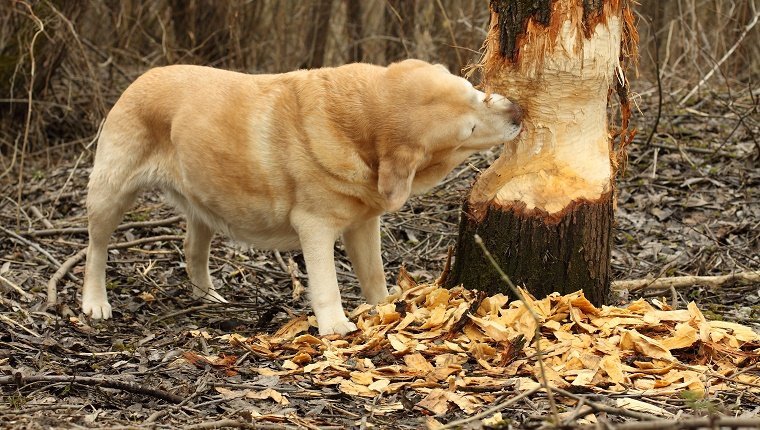
One obvious reason is simply that they love to find new things to taste. Because they produce amylase enzymes is similar.

Pine cones are brown look very different from a normal dog toy ie.
Why do dogs eat pine bark. The Norfolk pine Araucaria heterophylla appears naturally in temperate forests and is cultivated throughout the United States. It is grown for landscaping purposes and is commonly sold as a Christmas tree. While the exact mechanism of toxicity is unknown some dogs develop an upset stomach after eating pine wood.
Pine Bark Extract for dogs and cats is important as it is a powerful antioxidant which also supports an animals natural systems that control inflammation as well as being useful in aiding knocks and sprains. There are many reasons your dog puppy will want to eat a pine cone. One obvious reason is simply that they love to find new things to taste.
If you think about it dogs have an extraordinary ability to smell and naturally want to taste. Pine cones are brown look very different from a normal dog toy ie. Kong toy or pull rope.
Why Do Animals Eat the Bark and Wood of Trees and Shrubs. Chaney Professor of Tree Physiology Department of Forestry and Natural Resources Purdue University West Lafayette IN 47907 Cellulose. Because they produce amylase enzymes is similar.
Why Does My Dog Eat Mulch. The ASPCA explains that a dog who frequently eats non-food items such as wood dirt and rocks is suffering from a condition called pica. In some cases pica is exacerbated by a lack of exercise boredom and even anxiety especially in younger dogs.
However pica is often the result of a medical problem such as a. Why your dog barks with anxiety. Separation anxiety causes dogs to bark when you leave them alone and some dogs will experience anxiety when you crate them or at night when you go to bed.
Dogs are pack animals and when left alone or cut off from their pack some breeds such as beagles tend to bark and even become destructive. The first is to eat it raw. Digesting raw pine bark is so fibrous it can give you stomach cramps.
So consuming it raw is possible and an excellent way to get nutrients fast in a pinch its not how you want to eat pine bark if there are other options available. The second is to boil the bark. Cows will sometimes chew on wood and eat the bark off trees for a variety of reasons.
It can be the result of a nutritional deficiency that causes the sudden change but other times it is simple boredom. The act is not always harmful but there are ways to correct and even prevent the issue. Why Is Wood Bad For My Dog.
The problem with your dog eating wood is two-fold. Small pieces of wood can lodge splinters in the mouth and esophagus causing damage. Large pieces of wood can cause even more significant problems including perforated intestines or stomach lining and obstruction of your dogs bowels.
Are you asking yourself why does my dog eat sticks rocks pine cones acorns or other stuff while out in the yard or on a walk. Sticks and rocks are especially troublesome since they can injure your dogs mouth and cause intestinal blockages that could require surgery. Another potential risk of playing in water is a condition called aspiration pneumonia which is the result of a dog that inhales water into the lungs.
If caught quickly treatment is often successful. Symptoms may present within 24-48 hours of water play and include trouble breathing depression loss of appetite and a blue tint to lips and gums. These trees will have nuts conkers flowers bark and leaves some of which contain toxins such as Aesculin or others which are deadly to dogs.
The other danger of. Pine cedar and hemlock mulches are good alternatives to cocoa bean mulch if you have pets. However keep in mind that dogs can choke on mulch and must still be supervised.
This is especially true with pine needle mulch as the pine needles can. Rock eating can be the result of a medical behavioral or psychological problem. When a dog repeatedly eats non-edible objects obsessively it could be due to pica an eating disorder that.
Some dogs are quiet and would rather whine or whimper. Yet some others bark but very rarely. And sometimes your healthy barking dog stops barking altogether or a puppy grows up without barking into an adult retaining the quiet nature.